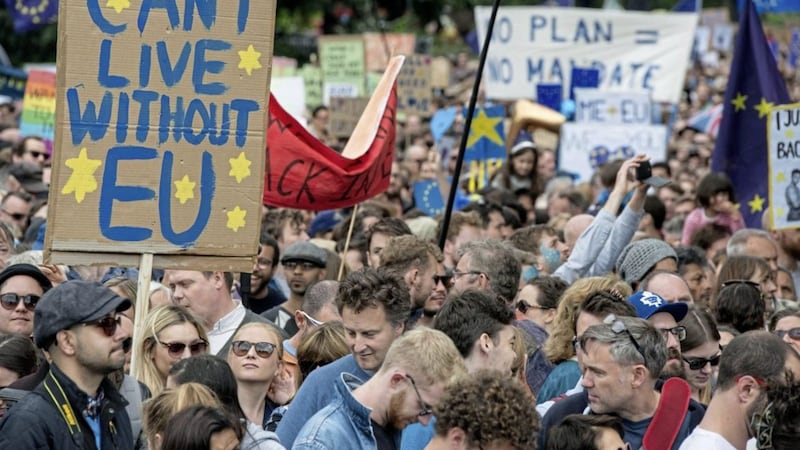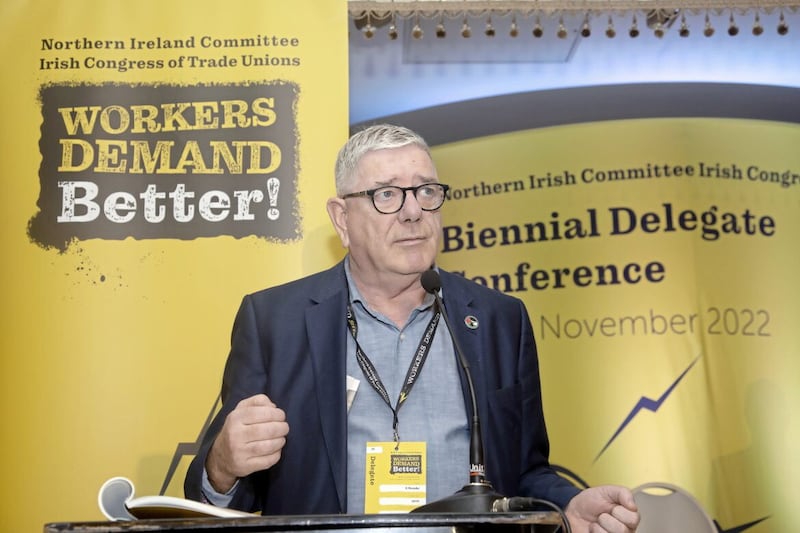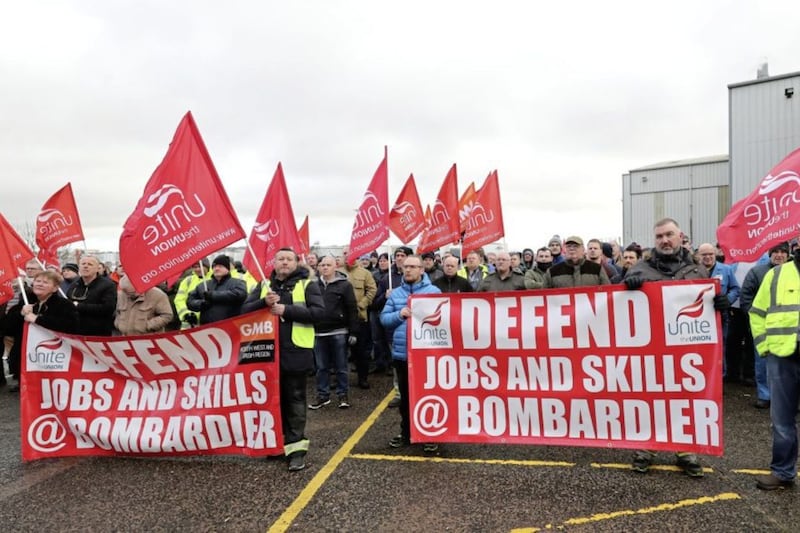TERESA May will pull the Article 50 trigger tomorrow. It will be heard around the world, and loudest of all in Northern Ireland, unleashing a period of great uncertainty for our society and economy.
And we in the Northern Ireland Committee of the Irish Congress of Trade Unions (NIC-ICTU) are hugely concerned that the voice of Northern Ireland has not been heard in this process to date. Worse still, it has yet to be articulated coherently and properly.
The trade union movement in Northern Ireland represents more than 200,000 workers through our 24 affiliate trade unions in both the public and private sectors. We represent workers from across the community including many international workers who have chosen to call Northern Ireland home.
We recently published our policy position on Brexit and how it must be handled if we are to protect the peace that has been built in recent decades, protect hard won workers’ rights and protect and then increase the amount of decent jobs here. We will be outlining this in greater detail at a major policy seminar in Belfast tomorrow.
But let us be clear - the referendum result of 52-48 per cent for leave across the UK does not equate to support for a hard Brexit. In Northern Ireland, as well as London and Scotland, the majority voted decisively to remain. This is not a voluntary severance.
And yet the issue of consent, a critical concept in the context of peace building here, is set aside as an irrelevance on an issue such as EU membership.
The decision pursue a hard Brexit has the potential for far reaching economic, social, political and cultural consequences for this place for decades ahead.
The reality is that the involuntary removal of Northern Ireland from the EU, the single market and the customs unions will, in effect, result in a hard Brexit. Despite all the rhetoric of not wanting a hard border, prioritising the prevention of the free movement of people guarantees one.
Quitting the customs union means tariffs on goods with additional costs of checking and policing such a regime means a hard border. Citing technology as a solution doesn’t address the issue adequately. This is precisely the problem with Brexit. Those who believe a hard Brexit will be good for Northern Ireland promote a policy based exclusively on hope, which is no coherent policy at all, and yet is more than the Stormont Executive managed. In contrast, Wales and Scotland have clear positions to mitigate the worst hopes of the Brexiteers.
However, with this political vacuum comes an opportunity, even an obligation, for us in the trade union movement, the employers and the voluntary sector to come together and articulate a policy that is in the long term interests of workers, employers and wider society.
Regardless of how a worker, a farmer or a business owner voted last June, they didn’t vote for lower living standards for themselves and their families. They didn’t vote for their job to become more vulnerable. They didn’t vote to make doing business more uncompetitive. They didn’t vote to usher in high tariffs on their products.
Brexit is way too important for this society to be left to politicians alone, be they from Brussels, London, Dublin and/or Stormont. We all have an obligation to develop a credible policy position taking into account the unique circumstances that apply in Northern Ireland. The trade unions are determined to ensure that workers do not pay the price of Brexit.
:: Owen Reidy is ICTU assistant general secretary








